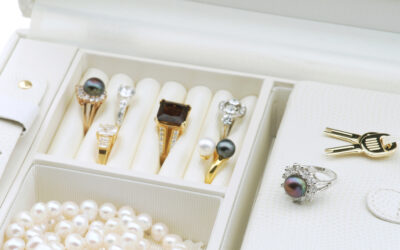You’ve tied the knot or are thinking about taking your relationship to the next level and it’s time to tackle something equally big: moving in together.
Mixing all your stuff and feelings into one place is a huge step. If you thought all you had to do when combining households after marriage was find space for all your things, here’s the scoop: you also have to find a way to weave your dreams, habits and even those quirky collections each of you has into a cozy nest you both call home.
Planning and talking are your best tools when merging two households, don’t forget that. No sliding into decisions because it seems easy or because everyone else thinks it’s time. When to blend your worlds is deeply personal. For some, it’s right before swapping rings; for others, it’s a chapter that starts after the honeymoon. The key is it should feel right for both of you, not because it’s what’s expected next.
So, ready to tackle this big day? Check out our tips for moving in after marriage and creating a shared living space that you both enjoy.
Plan and Declutter for a Unified Home
Jumping into the same living space doesn’t mean cramming two sets of stuff under one roof. The real deal is figuring out which bits and pieces make your shared spot feel like home — for both of you. So, where do you start? By taking a good, hard look at what you both bring to the table — literally and figuratively.
First things first, what’s your vibe? Minimalist chic, cozy cottage or something totally unique? Dream up your ideal living space and talk it out, seeing what you’ve got and what you still need.
Next up, is the decluttering phase. Before merging households, sift through your stuff and decide what stays and what goes. Got two coffee makers? Maybe one can find a new home. That stack of old magazines? Time to recycle. You know, deciding together what makes the cut means you’re crafting a place that’s truly ‘ours’, not ‘mine’ or ‘yours’. Totally worth every minute spent tossing things into Keep, Donate and Discard boxes, trust us.
Got extra things you can’t bear to part with? Rent a storage unit and stash them there for a while. After a few months, when you revisit those items, you might be surprised at what you’re ready to let go of or what has become a non-negotiable part of your shared nest.
Create and Organize Your Shared Space
Is it time to blend your worlds into one shared space? Make room for both your lives to fit comfortably. With a bit of planning, communication and compromise, you’ll craft a space that’s as unique as your partnership. Here’s how to turn that space into a place that screams ‘us’:
Furniture and decor
Find your shared style while going on an inspiration hunt. You can use sites like Pinterest or interior design blogs to find styles that speak to both of you. Budgeting is also important. Decide on how much you’re willing to spend together. Keeping track of expenses can avoid financial stress later on.
Thinking about combining styles? Look for pieces that serve as common ground between your tastes. Here’s a quick guide:
| Your Style | Their Style | ‘Our’ Style |
| Minimalist | Bohemian | Modern Boho |
| Vintage | Modern | Eclectic Modern |
| Shabby Chic | Contemporary | Contemporary Chic |
Embrace a fresh start
Moving into a new place? This is your canvas for a joint masterpiece. It’s a chance to build a home that’s new to both of you, free from past attachments. If one of you is moving into the other’s space, just reset it. Redecorate together to make it feel new and shared.
Plan for the full house
Sit down and chat about the future. Will there be little feet or paws padding around? Make sure your space can grow a little if needed. Love hosting or prefer quiet nights in? Set expectations and prepare your home accordingly. Maybe that means a sofa bed or a dedicated guest room.
Trial run
Not sure how your daily lives mesh? Spend a couple of weeks together in one space before making the move. It’s like a test drive for cohabitation, helping you spot and smooth out any bumps in the routine.
Maintain Individuality but Share Responsibilities
Combining households after marriage and blending lives doesn’t mean losing your sense of self. You can keep it with something as simple as personal spaces and some good old ‘me time’. Let’s face it, no matter how cozy your nest feels, everyone needs a little spot to call their own.
It can be a corner of the living room for your yoga mat or a desk space decked out with your favorite knick-knacks. Oh, and scheduling ‘me time‘ is just as important, keeping you grounded and bringing fresh energy into your shared life.
Divide and conquer chores
Chores are rarely fun, there’s no hiding it, but they’re a lot more bearable when shared fairly. Sit down together and make a list of daily, weekly and monthly tasks. Then, decide who does what, playing to each other’s strengths or dislikes. Here’s a simple way to start:
- Daily tasks: Dishes (You), Cooking (Them)
- Weekly tasks: Laundry (Them), Vacuuming (You)
- Monthly tasks: Deep cleaning (Together)
Pro tip: Create a chore chart to keep track of who’s doing what and prevent any one person from feeling overwhelmed.
Budget together and communicate openly
It’s vital to talk about money upfront. Start by laying all your cards on the table — income, savings, debts. Then, craft a budget that covers everything from rent to groceries, and yes, even date nights. Consider setting up a joint account for household expenses or a savings goal you’re both aiming for.
Now, regular check-ins help keep everything running smoothly. Use these moments not just to discuss chores or finances but to share feelings, dreams and maybe even concerns. After all, you are building a partnership where both voices are heard and valued.
Blend Routines, Sentiments and New Beginnings
When you decide to share your lives, it’s like mixing two colors together — you create something new and beautiful, but the process can get a little messy. Here’s how to blend your routines, belongings and even your comfort preferences into a masterpiece that works for both of you.
1. Adapt and sync your daily rhythms
This doesn’t mean you’re losing what makes you, well, you. You just have to find harmony in the everyday. Maybe you’re an early bird, and they’re a night owl. Chat about your schedules and carve out times for shared activities, like meals or a nightly unwinding session. The key is to sync your lives in a way that feels right, not forced.
2. Cherish the memories
We’re talking about personal belongings and all those sentimental treasures of yours. They tell the story of who you are. As you decide what gets shelf space when creating a shared living space, show the same respect and curiosity you’d want in return.
Maybe there’s a compromise where each of you selects a few must-keep items to decorate after merging two households. Base your decisions on the stories they hold. And as you do so, leave room for new memories together.
3. Set boundaries for a smooth transition after marriage
To be honest, screen time and where to set the thermostat are practical little things that matter more than you’d think.
Have an open chat about your digital habits to ensure you’re both present during ‘us’ time. As for the temperature, find a middle ground that suits you both. Maybe it’s agreeing on a range or investing in an extra blanket or fan. Prioritize comfort and show you care for each other’s well-being.
The Art of Combining Households After Marriage
So, we’ve chatted about sorting through your stuff to reduce clutter, setting up your place and even how to figure out whose turn it is to do the dishes. It’s been quite the ride, hasn’t it? The thing is combining households after marriage is a big deal and you should both enjoy it fully.
Now, making a place that feels good for both of you boils down to mixing what you both love. In your newlyweds’ home organization plan, each decision, from which posters to hang to how to spend your evenings, adds another layer to your shared life.
It’s okay to give a little, take a little and find happiness in the middle. And nobody expects you to get everything right straight away. The secret is to keep talking to each other. Whether it’s about who forgot to buy milk or how to save up for that dream vacation, staying open and patient makes all the difference.
To all you lovebirds about to share a mailbox, or maybe just thinking about it for now, here’s a little nudge: jump in with both feet and a big smile. Sure, there will be days when you wonder how someone can have so many socks, but remember, it’s all part of the great adventure you’re on together.


